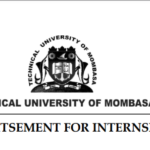In the quest for financial stability and independence, we often come across various money-saving tips and strategies. While many of these recommendations offer sound financial advice, not all of them are created equal.

In this feature story, we uncover ten money-saving tips that, despite their popularity, may not yield the financial benefits they promise and can even be counterproductive.
1. Buying in Bulk Without a Plan: Purchasing items in bulk can save money per unit, but only if you use everything you buy. Stockpiling can lead to waste if you can’t consume or store the items effectively.
2. Extreme Couponing: While coupons can provide savings, extreme couponing often involves purchasing unnecessary items just because they’re on sale. It can lead to overspending rather than saving.
3. Skipping Insurance Coverage: Cutting back on insurance coverage might seem like a way to save money, but it can lead to significant financial risks in the event of an emergency or accident.
4. Ignoring Preventive Maintenance: Neglecting regular maintenance of your home, car, or appliances to save money can lead to costly repairs down the road.
5. Overusing Credit Card Rewards: Credit card rewards can be beneficial, but using credit cards excessively just for rewards can lead to overspending and high-interest debt.
6. DIY Everything: While DIY projects can save money, attempting complex tasks without proper skills or tools can result in costly mistakes that professionals would have avoided.
7. Ignoring Health Check-Ups: Skipping regular health check-ups to save money can lead to undiagnosed health issues, resulting in higher medical costs in the long run.
8. Neglecting Retirement Savings: Delaying or underfunding retirement savings to save money in the short term can lead to financial insecurity later in life.
9. Unnecessarily Reducing Food Expenses: Cutting back too much on food expenses by buying cheap, unhealthy options can lead to health problems and medical bills.
10. Relying on Timing the Market: Attempting to time the stock market to buy low and sell high is a risky strategy that often results in losses rather than gains.
In the pursuit of saving money, it’s important to critically evaluate each tip and consider the long-term implications. What may seem like a money-saving strategy on the surface may actually cost you more in the end. It’s crucial to strike a balance between frugality and financial wisdom, making informed choices that align with your financial goals and values. Remember that not all money-saving tips are created equal, and it’s essential to weigh the potential risks and rewards of each financial decision.














